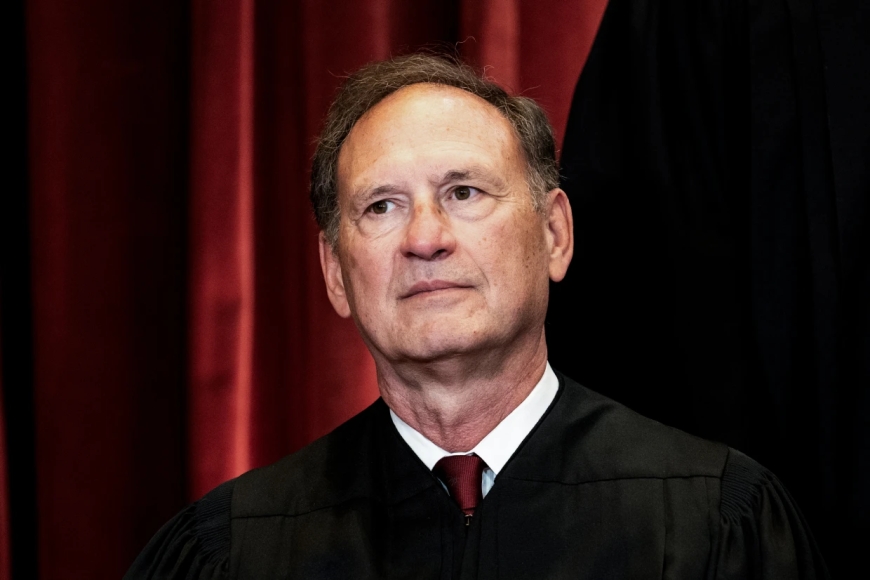Justice Alito Shows Uncharacteristic Empathy in High-Profile Cases Involving Trump, Gun Owners, and Jan. 6 Rioters
In a recent turn of events, Associate Justice Samuel Alito, known for his conservative stance and typically pro-prosecution votes, has exhibited a surprising level of empathy for defendants in several high-profile cases. This includes those involving gun owners, January 6 rioters, and even former President Donald Trump, despite his long history as a former U.S. attorney favoring stringent legal measures against defendants.

In a recent turn of events, Associate Justice Samuel Alito, known for his conservative stance and typically pro-prosecution votes, has exhibited a surprising level of empathy for defendants in several high-profile cases. This includes those involving gun owners, January 6 rioters, and even former President Donald Trump, despite his long history as a former U.S. attorney favoring stringent legal measures against defendants.
Appointed by President George W. Bush in 2006, Justice Alito has traditionally been perceived as the Supreme Court justice least sympathetic towards criminal defendants. His record predominantly shows a firm alignment with prosecutorial decisions, having sided with defendants less frequently than any of his eight Supreme Court colleagues, according to an analysis by Lee Epstein of the University of Southern California Gould School of Law.
However, recent Supreme Court oral arguments have seen Alito deviating from his usual perspectives, particularly in cases that involve complex constitutional and legal questions. Notably, during arguments over whether former presidents like Trump should be immune from prosecution, Alito raised critical questions about potential abuses of prosecutorial power. His inquiries suggested a skepticism of the Justice Department’s impartiality in politically sensitive cases, which marked a significant shift from his established judicial demeanor.
This shift was evident when Alito humorously remarked about the rarity of U.S. attorneys facing grand jury rejections, comparing it to the infrequency of an eclipse, during a dialogue with Justice Department veteran Michael Dreeben.
Moreover, Alito’s approach during discussions on the application of an obstruction statute to prosecute January 6 defendants suggested a broader concern about the potential for prosecutorial overreach. He posited that if the court upheld such applications, it might unjustly affect individuals involved in peaceful protests as well.
In another surprising stance, during debates on the federal ban on bump stocks—a gun accessory that allows faster firing—Alito expressed concerns over the fairness of prosecuting owners when the ban’s lawfulness was still under judicial review. His apprehension extended to another gun case where he pondered the due process rights of individuals under domestic violence protective orders who feel compelled to possess firearms for self-defense.
These instances of unexpected judicial empathy from Alito have sparked a range of reactions. Critics argue that his selective empathy aligns with conservative cultural grievances, suggesting a judicial philosophy that resonates deeply with political biases rather than an impartial assessment of the law. Supporters, however, view his recent queries as an indication of his nuanced understanding of the law and its implications on societal order and justice.
As the Supreme Court prepares to deliver its rulings on these contentious issues by the end of June, all eyes will be on Justice Alito and whether his recent positions signify a lasting change in his judicial outlook or are merely situational anomalies influenced by the unique circumstances of the cases before him.













































